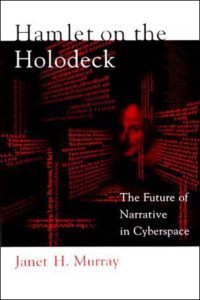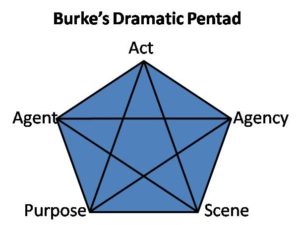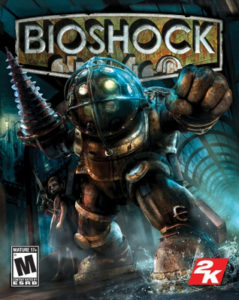
My journey to becoming a PhD student in English focusing on Game Studies has been convoluted. As a Master’s student, I focused on Professional Writing because that was my career, and Renaissance Drama because…well, because I enjoyed it. After a successful career that included game development, web design, professional writing/editing, and corporate communications, I started teaching first-year composition. When the opportunity arose to start a PhD program, my thought was to combine my teaching experience with my background in game design to develop educational games that would teach critical thinking skills. My investigations into this field have complicated matters, but I believe there is still a path toward that goal. However, it is one no less convoluted than the one that has led me here.
“Game Studies,” specifically the study of video games, is a relatively new field, one that has attracted scholars from many different disciplines. Formal study as a coherent field is typically traced to Aarseth’s “Computer Game Studies: Year One” article, which stakes out a place for games as an “emerging, viable, international academic field.” As such, a knowledge of professional practices and theory, which served me well in professional writing, is not enough. Likewise, knowing theater, literature, theory, and history, which I used effectively in Renaissance drama studies, is of little help here. My particular flavor of game studies may require a knowledge of composition theory, theories of learning and development, literary theory, psychology, and education (especially common core and the politics thereof), but also game design theory as a whole, the “canon” of popular and niche games, computer programming, visual rhetoric, digital rhetoric, and a host of other fields. Of course, few if any people can claim mastery of all these things, and I don’t claim that I will in the next fifteen or so semesters. But as an interdisciplinary field, unless I am going to stay in one tiny corner (which many successful scholars admittedly do), I need to have at least a passing familiarity with the majority of those subjects.

There are many objects of study that can serve as a focus for game studies from an English studies perspective. My initial interest long before I applied for this program was the changing nature of “narrative,” in an environment where the reader/player/end-user is an active participant in the creation of the story. Janet Murray’s book Hamlet on the Holodeck (1999) is one of the works that kicked off Game Studies as a field of formal academic study, and it remains an area I am very interested in. The kind of skills I want to teach – research and critical thinking – benefit from an engaging, immersive narrative, where the player/student feels that their choices have real meaning and impact. Without narrative (and in some cases, even with it), we are left with little more than a low-stakes multiple choice test, the pedagogical utility of which is a subject of much debate and skepticism.
Other English/Game Studies scholars have focused on the role of writing in games, such as Dr. Kevin Moberly. However, as he rightly notes in his article, “
Other English/Game Studies scholars have focused on the role of writing in games, such as Dr. Kevin Moberly. However, as he rightly notes in his article, “Composition, Computer Games, and the Absence of Writing,” with the development and prevalence of more sophisticated VOIP technologies, the written word is becoming scarce in gameplay as players and designers alike rely more on the spoken word and sound design to convey messages among and to other players. There are many auxiliary texts to games, such as message boards, strategy guides, and player-created resources like wikis, and they may be useful subjects of analysis to see how players generate written content about gameplay, but it remains to be seen how relevant these informal documents are to gauging the average player’s skill with more formal writing or problem solving, since these tend to be created by only the most hardcore fans of a game.
Relatively late in this course, I discovered the world of Dr. Ian Bogost of Georgia Tech, through a mutual acquaintance. I confess to being more than a little embarrassed at having not been more familiar with his contributions to the field, and my only excuse is that I had been more laser-focused on articles than books. I have since remedied that, and found that his work on “procedural rhetoric” to be relevant to my own interests in a number of ways, not least of which is the way games have a rhetorical message to the player, whether intended or not. I believe that further study of his work may yield important insights into how educational games can be used to teach skills like critical thinking, and I look forward to delving further into this idea.
While I have encountered resistance to the idea of games in education in discussions with game developers, educators and game scholars alike, I see their objections more as obstacles to be overcome than brick walls. Gaming professionals have found it difficult to generate interest from schools or the general public in educational games beyond the preschool level, but I found in discussing this with developers at the SIEGE Atlanta ’16 conference that few of them had an understanding of core curriculum standards for different subjects and grade levels, and thus could not demonstrate and apples to apples correlation between the skills presented in their game and the skills students were required to master in particular classes. With an understanding of both game development and education, I believe that this is something that I can address more effectively than those who are only familiar with a single perspective.
The games I have enjoyed as a player, and have worked on as a developer, are highly immersive and require a significant investment of time on the part of the player. This time can be shortened to some degree with good design, but to achieve genuine engagement with the game itself requires more time than is typically available in a grade 6-12 class period, and educators might be understandably concerned about assigning hours of gameplay as homework. I think this can be overcome, however, especially as more content is delivered electronically and expectations for screen time as part of education continue to expand. To set up an interesting scenario takes time, and

if the game is not enjoyable, at least to some degree, playing it will be just another rote exercise that students do not want to do. But perhaps that is part of the disconnect between designers and educators – the relationship between time invested willingly vs. unwillingly, engaged or obliged. In “The Motivation of Gameplay,” Marc Prensky states, “Remember, game designers focus primarily on motivation; educators don’t. The most important thing that educators can learn from game designers is how they keep the player engaged.” And that may be the area in which I can contribute the most.
I think ODU’s program is uniquely suited to the subjects I need to learn more about to pursue this path as a scholar, allowing me to delve deeply into both the composition pedagogy and new media areas I need to learn more about. However, I am going to have to do significant work above and beyond my coursework – learning Unity and/or Unreal, getting familiar with the “canon” of games, and learning as much as I can about the business and development of games, as well as the scholarly literature. The good news is that, as a game designer myself as well as a scholar, I already have some degree of credibility with both sides of that divide, and a significant network of contacts to draw on. There is a lot of work to do, but I feel like I have both a plan for how to get there, and more importantly, a real contribution that I can make to both scholarship and industry. I know there are frustrating times ahead, and more work than I have ever had in my academic career. But I have now what I have lacked in other programs: a genuine purpose, and a calling.
Aarseth, Espen. “Computer Game Studies – Year One.” Game Studies, vol. 1, issue 1, 2001. Web. 20 Sept. 2016.
Moberly, Kevin. “Composition, Computer Games, and the Absence of Writing.” Computers and Composition 25.3 (2008): 284–299. Web. 15 Sept. 2016.
Prensky, Marc. “The motivation of gameplay or, the REAL 21st-century learning revolution.” On The Horizon, vol. 10, no. 1 (2002). Web. 14 Dec. 2016.




